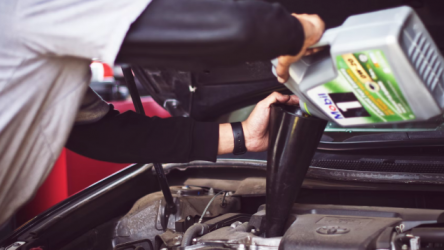
We’ve all been in a situation where we get into our vehicle, start the engine, and something just doesn’t sound right. Sounds can tell you a lot about how well your car is functioning. The following are just some sounds to keep an ear out for:
Leaking Air
Stopped at a light, you hear a sound similar to that of air leaking out of a balloon. Typically, this sound indicates a problem with your exhaust manifold gasket. Make an appointment to have the gasket replaced as soon as possible. Not only can the continuous stream of hot gas eventually damage your car, it can also cause harmful effects to you in the form of carbon monoxide poisoning.
Hissing
You turn on the engine and suddenly it hits you. You hear a “ssssss” sound coming from under your hood. More likely than not, it is a leak in the vacuum. While not a true emergency, you will want to schedule an appointment to have the line replaced or reconnected.
High Pitched Squeak/Squeal
If you are hearing an unpleasant squealing sound coming from within your tires, it may be an issue with your brake pads. They may need to be replaced or properly secured with adhesive but, keep in mind, that this sound may never completely go away.

Ticking Sound
A ticking sound, if heard under the rear center of the car, usually means there is a problem with the U-joint. To fix the situation, you will need to replace the U-joints and ensure that they remain properly lubricated.
Thumping
You are driving your car and, as your velocity increases, you hear a repetitive thumping sound coming from your tires. The culprit is likely a flat spot on your tire, a problem that is more common during the colder months. To reduce the occurrence of flat spots, switch from nylon to steel-belted tires.
Clunking
If you hear a dull clunking sound coming from the front of the car while parking or going over bumps in the road, the ball joint likely needs replacing. Call a mechanic at the earliest opportunity.
Clanging
A sound most commonly heard from underneath the middle of a pickup truck with an automatic transmission, clanging usually indicates a problem with the splines. This is certainly not an emergency and some grease should minimize the sound temporarily.
Thunking
If you hear a thunking sound coming from the front of your vehicle when you turn a corner, the problem likely exists in the CV joint that facilitates the turning of the front wheels. Don’t take long trips until you have the half-axle replaced.
Growling Sound
You turn the wheel hard to the right or left, hold the wheel in place, and the sound hits you. The problem is the excessive release of power-steering fluid by the pressure relief valve. Ease up when you turn the steering wheel and the problem should be dramatically reduced.
Flapping/Squealing Sound
When you start the car, a flapping or squealing sound can indicate a loose belt, poor tension, or a pulley that is not properly aligned. Make an appointment to fix the problem as soon as possible since belt failure is inevitable if left unaddressed.
Grumbling
A grumbling at the front end of the car could indicate leaking coolant due to malfunctioning water pump bearings. The pump needs to be replaced as soon as possible to prevent rupturing of the radiator.
While this is certainly not a comprehensive list, being familiar with the above sounds and their meanings could very well save you a significant amount of time and money down the road.
One of the biggest benefits of being empowered with knowledge about your car is your ability to work well with mechanics that you have fix your car. Mechanics love a customer who can tell the story of their car problems because they can save customers money, time, and frustration. You can explain more clearly what you notice in your car and the mechanics will be able to more clearly diagnose what your car’s issue is.






